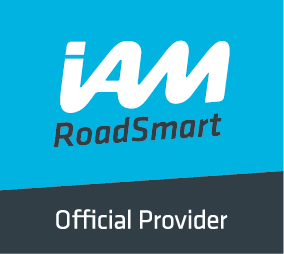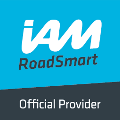Using a Sat Nav: tips from IAM RoadSmart
Satellite navigation systems (sat navs) are a must have these days but many road users fail to use this travel companion in the correct or safe manner. In a recent simulator study looking at a variety of distractions, programming a sat nav had the biggest negative impact on driving standards. This week’s tips give advice on riding and driving with a sat navs, from IAM RoadSmart’s head of driving and riding standards Richard Gladman.
- Programme your journey before you set off. Looking at your sat nav system to make changes to your destination is a distraction and may prove to be dangerous. If you need to make an alteration find an appropriate place to stop
- Get to know your system; being able to mute or activate voice commands without having to look at the system will be useful. Features such as live traffic updates and road works warnings will help in planning your arrival time. A state-of-the-art system will offer route changes where time savings are possible
- If you are buying a stand-alone unit or picking up your new car with a built in sat-nav ask for a demonstration of the features. It can be frustrating trying to ‘educate’ a different system to your way of working
- If you are using your phone as a navigation device make sure it is securely mounted and programmed prior to departure. Being a mobile, notifications, message alerts and calls can pop up. Do not be tempted to respond or touch it as you may fall foul of mobile phone legislation
- Don’t attract thieves. Remember to take off your sat nav and pop it in the glove compartment and wipe down the window so there is no tell-tale ring marks pointing a thief in the direction of your car
Richard said: “Satellite navigation can be a fantastic tool if you use it to help you plan and conduct your journey. A tale of caution though it is always a good idea to have an idea where you are going. Don’t be scared to have a glance on the map. If I was going to St Ives I could potentially be guided 350 miles out of my way if I relied totally on the navigation unit. Best to know whether the A14 or the A30 form part of my route.”
Notes to editors:
- Richard Gladman is IAM RoadSmart’s head of driving and riding standards.
- IAM RoadSmart has a mission to make better drivers and riders in order to improve road safety, inspire confidence and make driving and riding enjoyable. It does this through a range of courses for all road users, from online assessments through to the advanced driving and riding tests. IAM RoadSmart is the trading name of all businesses operated by the UK’s largest road safety charity, the Institute of Advanced Motorists (IAM) and was formed in April 2016 combining the IAM, IAM Drive & Survive, PDS and IAM Driver Retraining Academy. The organisation has 92,000 members and campaigns on road safety on their behalf. At any one time there are over 7,000 drivers and riders actively engaged with IAM RoadSmart’s courses, from members of the public to company drivers, while our Driver Retraining Academy has helped 2,500 drivers to shorten their bans through education and support programmes.
To find out more about IAM RoadSmart products and services visit the new website www.iamroadsmart.com
To find out the name of your own local IAM RoadSmart group please visit: https://wwwiamroadsmart.com/local-groupsMedia contacts:
Further information from:
IAM RoadSmart press office – 020 8996 9777
[email protected] / www.iamroadsmart.com
ISDN broadcast lines available
Follow us:
On Facebook: www.facebook.com/IAMRoadSmart
On Twitter: @IAMRoadSmart

